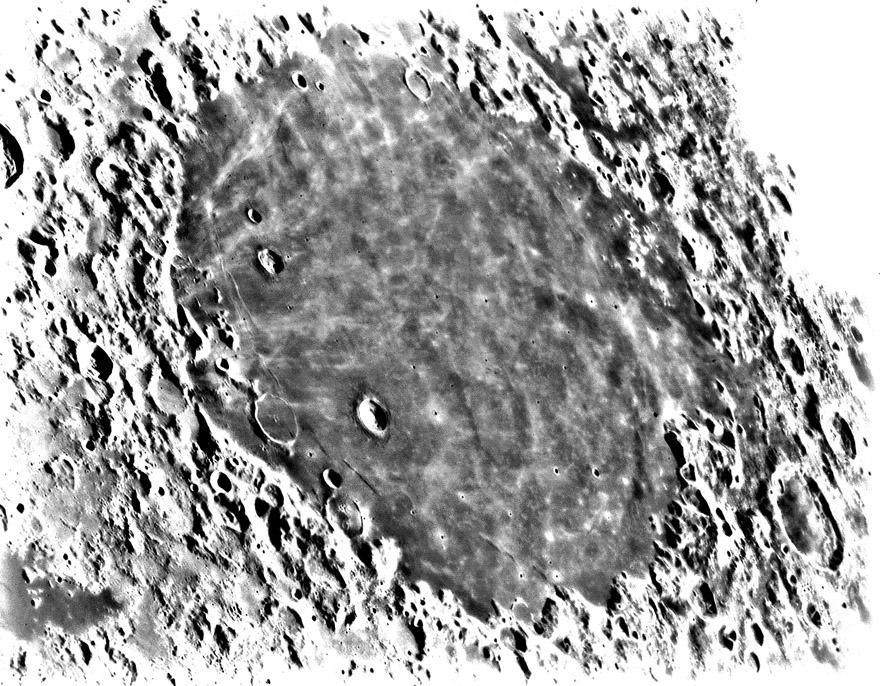Difference between revisions of "March 13, 2010"
| Line 3: | Line 3: | ||
<!-- ws:start:WikiTextHeadingRule:1:<h1> --> | <!-- ws:start:WikiTextHeadingRule:1:<h1> --> | ||
<!-- ws:start:WikiTextLocalImageRule:16:<img src="/file/view/LPOD-Mar13-10.jpg/127260951/LPOD-Mar13-10.jpg" alt="" title="" /> -->[[File:LPOD-Mar13-10.jpg|LPOD-Mar13-10.jpg]]<!-- ws:end:WikiTextLocalImageRule:16 --><br /> | <!-- ws:start:WikiTextLocalImageRule:16:<img src="/file/view/LPOD-Mar13-10.jpg/127260951/LPOD-Mar13-10.jpg" alt="" title="" /> -->[[File:LPOD-Mar13-10.jpg|LPOD-Mar13-10.jpg]]<!-- ws:end:WikiTextLocalImageRule:16 --><br /> | ||
| − | <em>image by [mailto:webmaster@skytrip.de | + | <em>image by [mailto:webmaster@skytrip.de Mario Weigand]</em><br /> |
<br /> | <br /> | ||
Observing near full Moon there is a clash of albedos, with bright rays from Copernicus, Aristarchus and other young craters winging across dark maria. But how dark are the maria, really? In this image - with sincere apologies to Mario! - I have severely enhanced the gray portion of the histogram to reveal that Mare Crisium is crossed by ray material nearly everywhere. Five radial swaths of rays in western Crisium radiate away from Proclus, but the sources for most of the other ray fragments can not be easily identified. Crisium and other maria are contaminated with faint filagrees of bright material, some being immature mare rocks - for example, the little nimbi surrounding fresh small craters in the mare - and other being anorthositic material from the highlands. This means that there can be small secondary craters virtually anywhere - complicating age dating by crater counting - and that mare samples collected by space probes - Luna 24 landed in the bottom right corner of Crisium - are contaminated by a patina of non-local material.<br /> | Observing near full Moon there is a clash of albedos, with bright rays from Copernicus, Aristarchus and other young craters winging across dark maria. But how dark are the maria, really? In this image - with sincere apologies to Mario! - I have severely enhanced the gray portion of the histogram to reveal that Mare Crisium is crossed by ray material nearly everywhere. Five radial swaths of rays in western Crisium radiate away from Proclus, but the sources for most of the other ray fragments can not be easily identified. Crisium and other maria are contaminated with faint filagrees of bright material, some being immature mare rocks - for example, the little nimbi surrounding fresh small craters in the mare - and other being anorthositic material from the highlands. This means that there can be small secondary craters virtually anywhere - complicating age dating by crater counting - and that mare samples collected by space probes - Luna 24 landed in the bottom right corner of Crisium - are contaminated by a patina of non-local material.<br /> | ||
<br /> | <br /> | ||
| − | <em>[mailto:tychocrater@yahoo.com | + | <em>[mailto:tychocrater@yahoo.com Chuck Wood]</em><br /> |
<br /> | <br /> | ||
<strong>Technical Details</strong><br /> | <strong>Technical Details</strong><br /> | ||
04/22/2007, 20:48 CEST (18:48 UT). Celestron C11 + DMK 21 BF04 FireWire-Camera<br /> | 04/22/2007, 20:48 CEST (18:48 UT). Celestron C11 + DMK 21 BF04 FireWire-Camera<br /> | ||
| − | Mario's image appears in its [http://lpod.org/coppermine/displayimage.php?pos=-2116 | + | Mario's image appears in its [http://lpod.org/coppermine/displayimage.php?pos=-2116 natural state] in the LPOD Photo Gallery.<br /> |
<br /> | <br /> | ||
<strong>Related Links</strong><br /> | <strong>Related Links</strong><br /> | ||
Rükl plate [http://the-moon.wikispaces.com/R%C3%BCkl+27 27]<br /> | Rükl plate [http://the-moon.wikispaces.com/R%C3%BCkl+27 27]<br /> | ||
| − | Mario's [http://www.SkyTrip.de | + | Mario's [http://www.SkyTrip.de webpage]<br /> |
<br /> | <br /> | ||
<hr /> | <hr /> | ||
| − | <div>You can support LPOD when you buy any book from Amazon thru [http://www.lpod.org/?page_id=591 | + | <div>You can support LPOD when you buy any book from Amazon thru [http://www.lpod.org/?page_id=591 LPOD!]<br /> |
</div> | </div> | ||
---- | ---- | ||
===COMMENTS?=== | ===COMMENTS?=== | ||
| − | + | Register, and click on the <b>Discussion</b> tab at the top of the page. | |
Revision as of 16:16, 11 January 2015
Rays, Rays Everywhere

image by Mario Weigand
Observing near full Moon there is a clash of albedos, with bright rays from Copernicus, Aristarchus and other young craters winging across dark maria. But how dark are the maria, really? In this image - with sincere apologies to Mario! - I have severely enhanced the gray portion of the histogram to reveal that Mare Crisium is crossed by ray material nearly everywhere. Five radial swaths of rays in western Crisium radiate away from Proclus, but the sources for most of the other ray fragments can not be easily identified. Crisium and other maria are contaminated with faint filagrees of bright material, some being immature mare rocks - for example, the little nimbi surrounding fresh small craters in the mare - and other being anorthositic material from the highlands. This means that there can be small secondary craters virtually anywhere - complicating age dating by crater counting - and that mare samples collected by space probes - Luna 24 landed in the bottom right corner of Crisium - are contaminated by a patina of non-local material.
Chuck Wood
Technical Details
04/22/2007, 20:48 CEST (18:48 UT). Celestron C11 + DMK 21 BF04 FireWire-Camera
Mario's image appears in its natural state in the LPOD Photo Gallery.
Related Links
Rükl plate 27
Mario's webpage
COMMENTS?
Register, and click on the Discussion tab at the top of the page.



